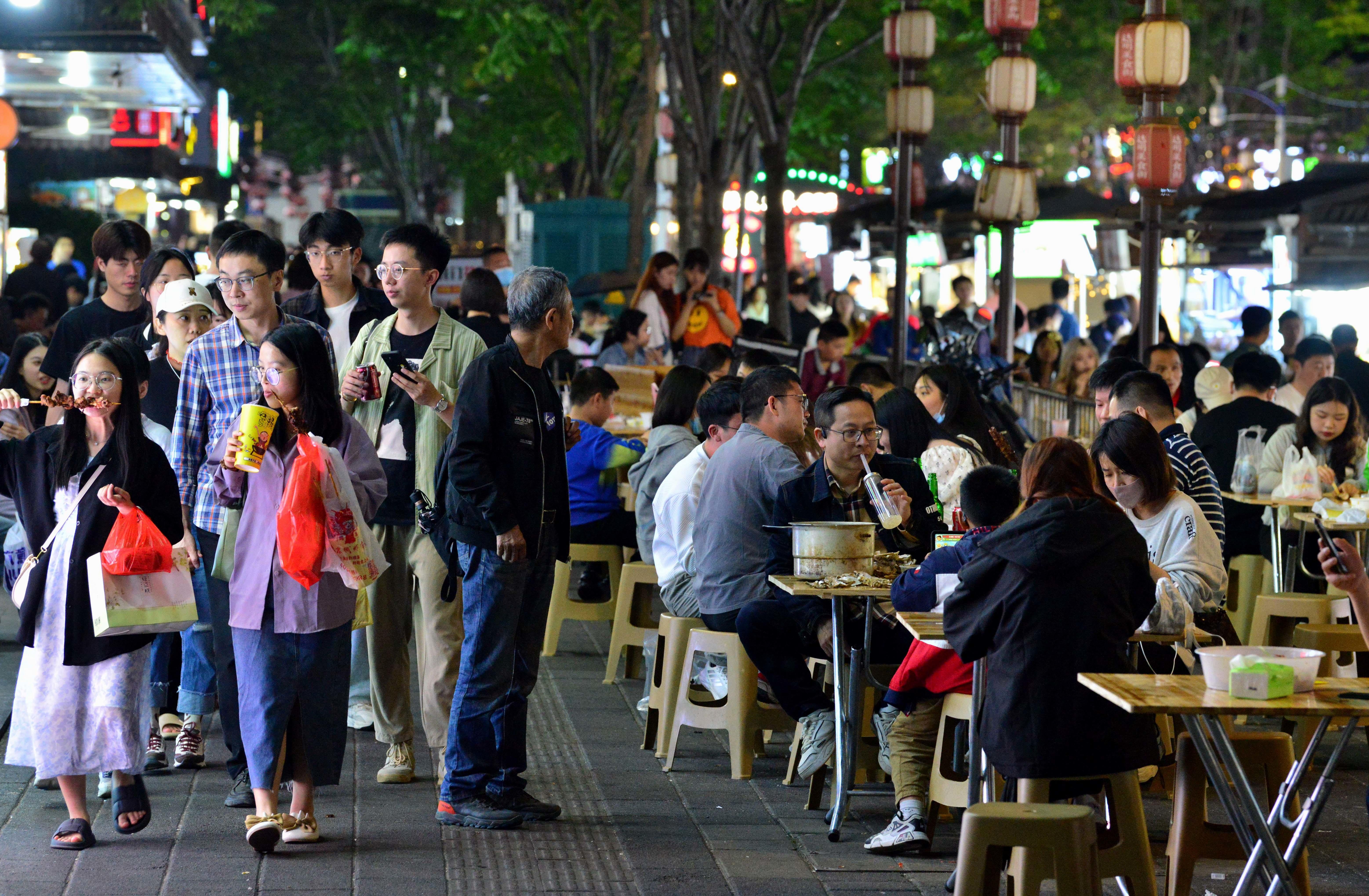Many authorities looking to allow small shops to operate to give economy a boost
 People taste delicacies on Daming Food Street in Fuzhou, Fujian province, on Tuesday. The bustling food street is filled with a variety of stores and lines of snack stalls. (PHOTO / CHINA NEWS SERVICE)
People taste delicacies on Daming Food Street in Fuzhou, Fujian province, on Tuesday. The bustling food street is filled with a variety of stores and lines of snack stalls. (PHOTO / CHINA NEWS SERVICE)
Authorities in some cities across China are taking another look at their bans on street vendors, as the nation seeks a variety of ways of reinvigorating local economies as it emerges from the shock waves of the pandemic.
In recent years, various local governments have placed restrictions or banned street vendors altogether due to a lack of regulation, accountability, unsightliness and other factors.
But now, authorities in cities such as Lanzhou in Gansu province and Shenzhen in Guangdong province are encouraging vendors to get back on the streets and back to business, in a more regulated manner, they say.
In a revision of the city appearance and environmental hygiene regulation, the Shenzhen people's congress lifted its ban on stalls, taking effect on Sept 1.
Stalls will be allowed in certain areas that will be mapped out based on the principles of serving the people and orderly management, the government said.
Similar measures have been taken in Lanzhou, which is now classifying areas into three categories — prohibited, restricted and open.
Street vendors will not be allowed to operate in prohibited areas, such as areas within 100 meters of primary or secondary schools, hospitals, transportation hubs or major event venues. They are also prohibited on bridges, pedestrian overpasses and in underground passages.
Netizens, so far, have welcomed getting vendors back on the streets.
One blogger said in a post on microblogging platform Sina Weibo, "I think it's good and convenient, and vendors can make money and consumers have more choice."
Another netizen said it will provide job opportunities.
Similar approaches have been introduced in many parts of the country, including the affluent Jiangsu province.
On April 17, Lianyungang, a city in Jiangsu, released new measures to promote the "small shop economy".
According to the Lianyungang government website, property taxes and urban land-use taxes will be temporarily exempted in the first half of this year for small shops in the accommodation and catering, sports and entertainment, transportation, tourism, retail and warehousing industries.
The city will lower financing costs by providing as much as 3 million yuan ($434,000) in guaranteed loans and offering rent relief to small shops.
"A small shop is closely connected with a family's livelihood. It plays an irreplaceable role in promoting economic development, providing jobs, increasing incomes, serving the public and building a better life," Ding Zuohong, a member of the National Committee of Chinese People's Political Consultative Conference, told China Economic Weekly.
"It is the foundation of steady growth, employment, social development and common prosperity. Many major private enterprises started from small shops."
In Tianjin, a joint conference system to support private business was established in Binhai district in April.
Feng Yan, director of government services in market supervision bureau in the district, told Tianjin Daily that it aims to stimulate entrepreneurial and innovation vitality and promote the development of the private economy based on individual businesses.
"In the past, we had to apply for licenses and certificates at market regulatory authorities individually. It was complicated and time-consuming. Now I can apply for a food vendor registration card and finish the process in one day," said Liu Qi, manager of a local business.
There are 115 million self-employed entrepreneurs nationwide, accounting for two-thirds of all market entities, official statistics showed.
Wang Songsong contributed to this story.
